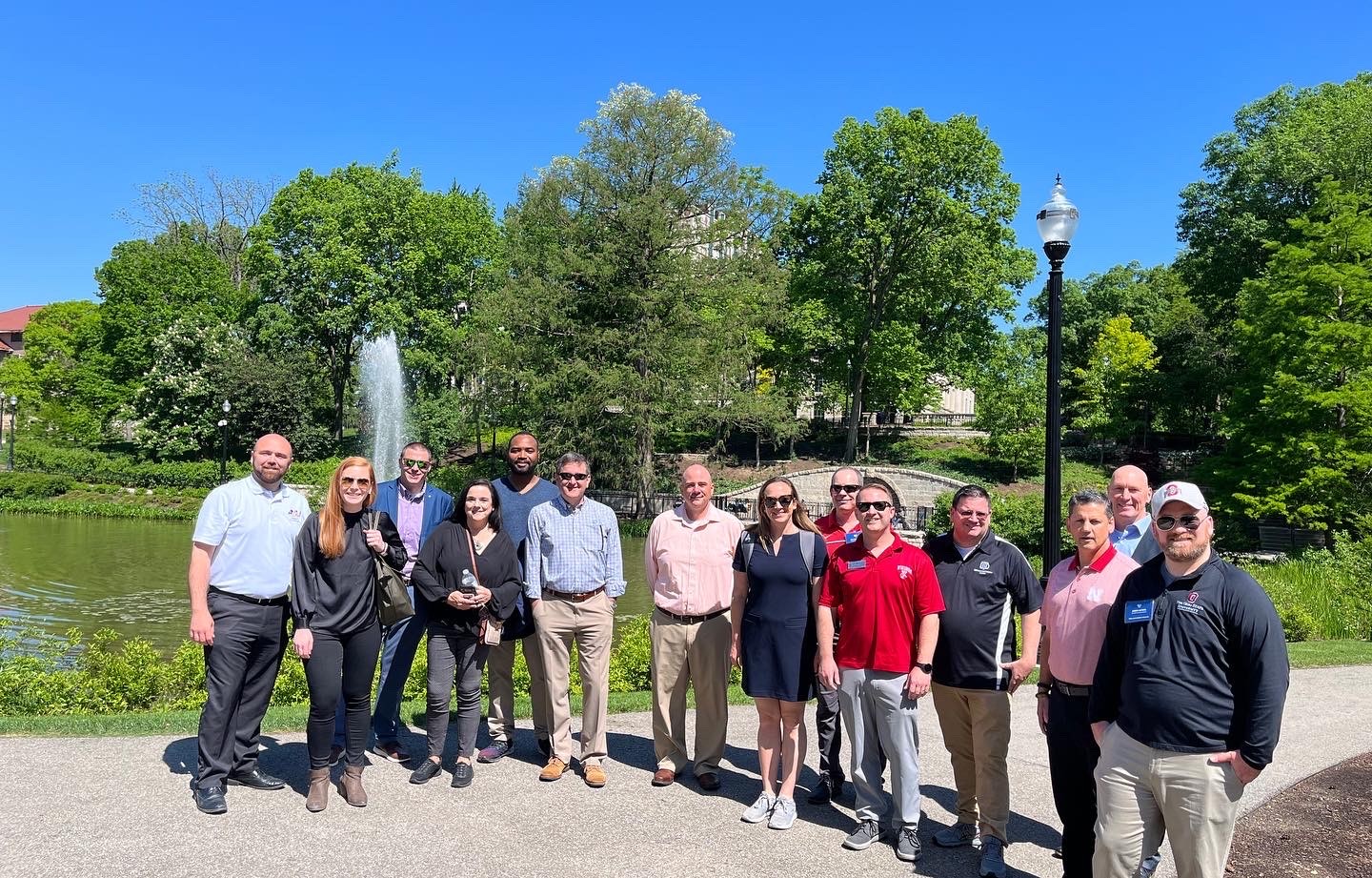Programs help veterans, students in military achieve personal, academic success
Ohio State’s Peer 2 Peer, Military Community Advocate programs adopted nationwide

|
Chris Bournea Ohio State News |
For Jael Dennis, a National Guard reservist and Reserve Officers’ Training Corps (ROTC) cadet who just graduated from The Ohio State University, volunteering in the university’s 3rd & Goal Peer 2 Peer Sponsor program is an opportunity to give back to classmates who have served in the military.
“If they’re new to Columbus, we share information with them about the area and the Short North,” Dennis said. “In the veterans’ lounge, there’s camaraderie.”
When Dennis, a foreign policy graduate, began volunteering at the beginning of her senior year last fall, she came up with a variety of ideas to help veterans and other students in the military. She shared an app with them on the best places to view autumn leaves in central Ohio and conducted a seminar that offered stress-management and relaxation tips.
“I did a pumpkin-decorating contest to break up the monotony of finals,” Dennis said. “That was before Thanksgiving.”
Dennis is one of more than 2,180 military-connected students and their family members who are enrolled at Ohio State. The 3rd & Goal Peer 2 Peer Sponsor program is designed to help incoming student veterans and service members transition from the military to the university environment and address challenges that are different from what most traditional students face, said retired Air Force Col. Kevin Cullen, director of the Office of Student Academic Success’s Military and Veterans Services.
In addition to the Peer 2 Peer Sponsors, Ohio State also has a Military Community Advocate program, established in honor of the late Maj. Lawrence Miller, a U.S. Navy and Air Force veteran who earned bachelor’s and master’s degrees at Ohio State.
 “Advocates are student ambassadors of our office, spread out across the university in strategic areas,” Cullen said.
“Advocates are student ambassadors of our office, spread out across the university in strategic areas,” Cullen said.
Advocates work in the Office of Student Life’s Buckeye Careers initiative, conducting job fairs and resume-writing workshops; assisting students in Disability Services; and providing guidance in applying for tuition assistance, the class registration process, and referrals to the Vet Success on Campus Counselor program for intervention and counseling.
“We have student advocates in many colleges, particularly the College of Social Work, the College of Dentistry, the Fisher College of Business, the Glenn College of Public Affairs and other colleges, and we have them at regional campuses,” he said. “They are an extension of our office.”
Over the past 10 years that the Advocate program has been in existence, it has served as a model for universities across the country, which have begun to adopt its practices, including Ashland University, Columbus State Community College, Indiana University, Penn State University, the University of Nebraska and the University of California, Los Angeles (UCLA), Cullen said.
“There’s a number of other universities that have said they are, and they just don’t start until fall,” he said.
The Advocate program was among the best practices discussed during the National Veteran Leadership Foundation’s (NVLF) 2022 Advancement Institute, which brought representatives from 15 universities nationwide to the Blackwell Inn and Pfahl Conference Center on Ohio State’s Columbus campus May 17-18.
During the Advancement Institute, university representatives toured Ohio State’s campus and the National Veterans Memorial & Museum in downtown Columbus. They participated in panel discussions and breakout sessions on how to best support military-connected students and their families, said James Miller, NVLF president.
“We have 16 universities that make up a consortium of schools who are committed to creating an inclusive culture on their campuses that support veteran and military-connected students – that would be veterans, ROTC, National Guard reservists, spouses and family members of all those groups,” said Miller, former associate dean of Ohio State’s Max Fisher College of Business. “The objective is to help universities think through collectively, how to understand how to better serve that student population and include them in their strategic planning.”
On May 26, Gov. Mike DeWine presented Ohio State with the state’s new Collegiate Purple Star. The designation recognizes public and independent colleges and universities in Ohio that are supportive and inclusive of military-connected students.
For more information about the 3rd & Goal Peer 2 Peer Sponsor or Military Community Advocate program and other support services that Ohio State provides for veterans and students serving in the military, click here.


